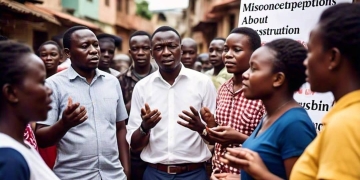GSMA Intelligence has released a white paper titled, “5G FWA in Africa, Emerging Trends and Opportunities”. The whitepaper, which was released during the 2023 Africa 5G Summit at AfricaCom, comprehensively analyses the current development trends and future opportunities of 5G fixed wireless access (FWA) services in Africa.

According to Kenechi Okeleke, Director of Regional, Social and Policy Research, GSMA Intelligence, 5G FWA has been widely recognised as an alternative to fixed broadband, with 116 operators worldwide having already launched 5G-based commercial FWA services in 57 markets.
“Half of 5G launches in Africa have included an FWA offering,” he said. “That is a very high number and it’s not just in Africa, it’s global”.
The maturity of 5G FWA technologies and commerce is bringing new opportunities for digitalisation in Africa and helping Africa address the gap in last-mile fixed broadband connectivity.
At present, 30 operators in 17 markets in Africa have launched 5G commercial services. Of those, 14 operators have launched 5G FWA services. Nearly 10 other African countries have announced plans to launch 5G for commercial use. 5G FWA is 10 times faster than 4G FWA. Additionally, 5G FWA is not only an upgrade technology for 4G FWA, but also a pragmatic strategy for mobile operators to expand mobile data services and provide enhanced connectivity services for home and enterprise network devices, opening up new incremental space in the home and to business markets. Leaders in the 5G FWA service will get the first opportunity to compete in the market.
According to the whitepaper, the development of FWA services depends on various factors, including spectrum availability, 4G FWA availability, CPE price, spectrum slicing technology, and 5G network coverage. In terms of spectrum, the 3.5GHz, 2.3GHz and 2.6GHz spectrums are critical for operators in South Africa to develop 5G FWA. In addition, 2.3GHz and 2.6GHz spectrums have multiple commercial values because these two spectrums can support both 4G and 5G, allowing operators to expand 4G networks while also being used to develop 5G.

That means multiple benefits from one investment. In terms of customer premises equipment (CPE) prices, GSMA data shows that 4G/5G CPE shipments double every year. It cautions, however, that CPE costs in sub-Saharan Africa are far too high, which has become a bottleneck for 5G monetisation and FWA market development. The GSMA Intelligence whitepaper recommends that the government reduce taxes on terminal to promote the development of the digital economy. Many operators in Africa have lowered the threshold for market development through CPE trade-in and credit.
In the whitepaper, GSMA states that connectivity is critical to building Africa’s digital economy. 5G FWA is well-placed to play a crucial role in building that economy by addressing the gap in last-mile fixed broadband connectivity and delivering enhanced connectivity services to households and enterprises. To take advantage of these opportunities, stakeholders including governments and policymakers, operators, service providers, ecosystem partners, will need to take steps to facilitate the deployment of 5G FWA networks and stimulate adoption among households and enterprises.




















